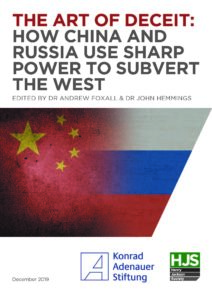 Russia’s increasingly globalized campaign on behalf of authoritarian stability has been most visible and ambitious in Syria, but is equally evident in Belarus and further afield, notes a leading analyst.
Russia’s increasingly globalized campaign on behalf of authoritarian stability has been most visible and ambitious in Syria, but is equally evident in Belarus and further afield, notes a leading analyst.
Even as Russia has invaded its neighbors, deployed forces to Syria, positioned itself as a key partner for regimes worldwide concerned about Western-backed democracy promotion, and shaken political systems throughout the West itself, the perception of Russia as little more than a nuisance, a terminally declining state that should dispense with its great power ambitions and allow the United States to focus on the “pacing threat” of China, persists, notes Jeffrey Mankoff, a Distinguished Research Fellow at the US National Defense University’s Institute for National Strategic Studies.
Moscow today takes the existence of a hostile West as a given and emphasizes strengthening ties with non-Western states, including China, to push for a more “democratic” (i.e., non-US-led) world order….Central to this vision is the idea that the great powers should be responsible for
their own security and have the right to determine their own political system – with democracy holding no special claims, he writes in Russia in the Era of Great Power Competition, an article for The Washington Quarterly:
Russian support [for Lukashenko] rests on an assumption that authoritarian stability is preferable to the messiness of democracy—a contemporary analogue to Russia’s mid-19th
century role as the “gendarme of Europe.” That idea is enormously appealing to imperiled authoritarians—ranging from Venezuela’s Nicolas Maduro to Myanmar’s Min Aung Hlaing—who see Russia as a partner in their efforts to remain in power. Democratically elected strongmen like Hungary’s Viktor Orbán and Turkey’s Recep Tayyip Erdoğan have also turned to Moscow for support despite their country’s membership in NATO.

National Endowment for Democracy (NED)
It is important to note that Russia is not an ideological rival to Western democracies in the same way the Soviet Union was, Mankoff adds. However ….
Russia’s employment of “sharp power” and ability to put a finger on the scale of political debates within rival states are significant assets. To a greater extent than China, Iran, or other rival powers, Russia’s employment of subversion and other dark arts rests on a sophisticated understanding of democratic politics, including the salience of ethnocultural cleavages and the lure of money and corruption. ….While Russia is certainly not the cause of the West’s democratic backsliding, its deliberate cultivation of alternative political voices means that it is uniquely placed to benefit from democratic breakdown or the rise of nonmainstream political leaders on the left or the right. RTWT
Russia’s employment of [what @ThinkDemocracy calls #sharpower] are significant assets for the Kremlin, @DrJMankoff @NDU_EDU @CSISRussia @TrumanProject writes for @TheWashingtonQu https://t.co/4qxnr3b7Wx
— Democracy Digest (@demdigest) September 22, 2021







